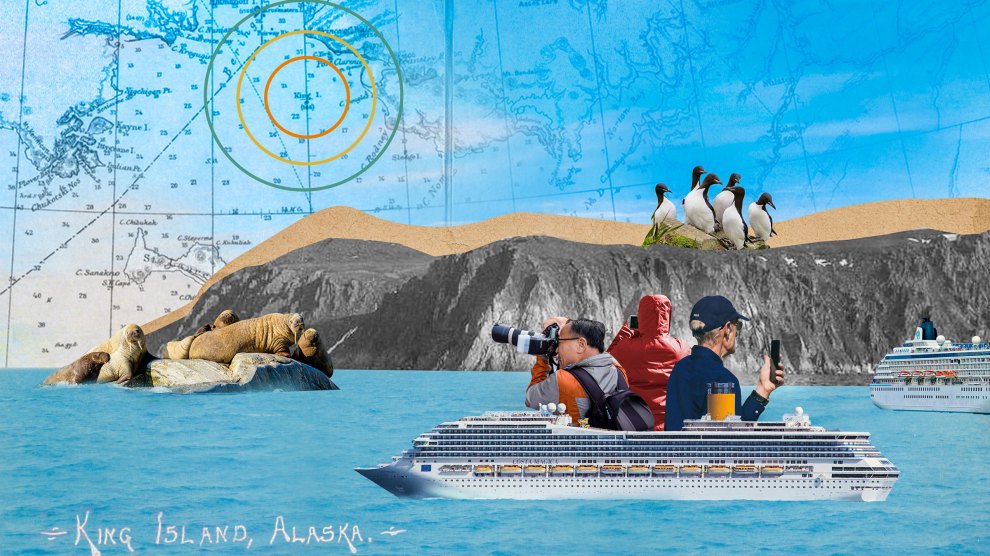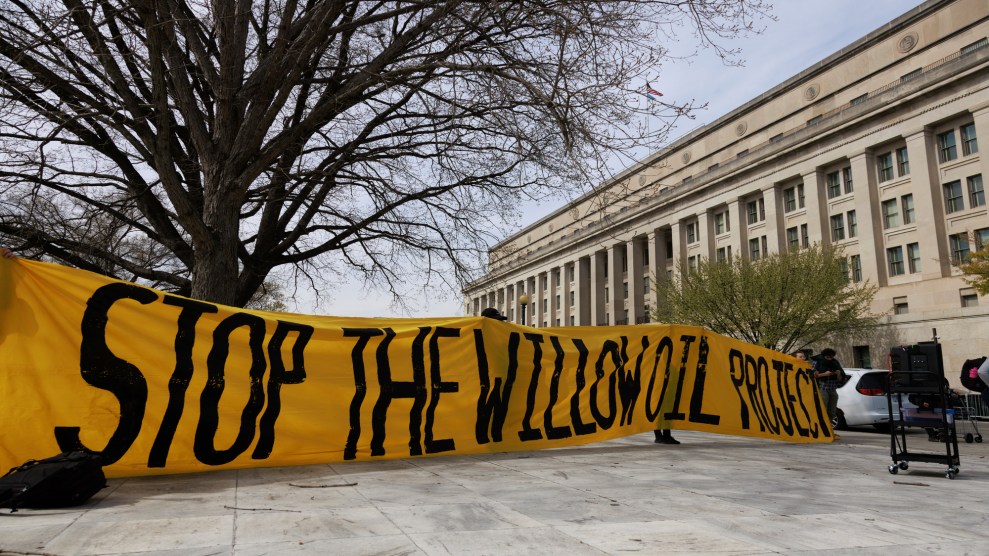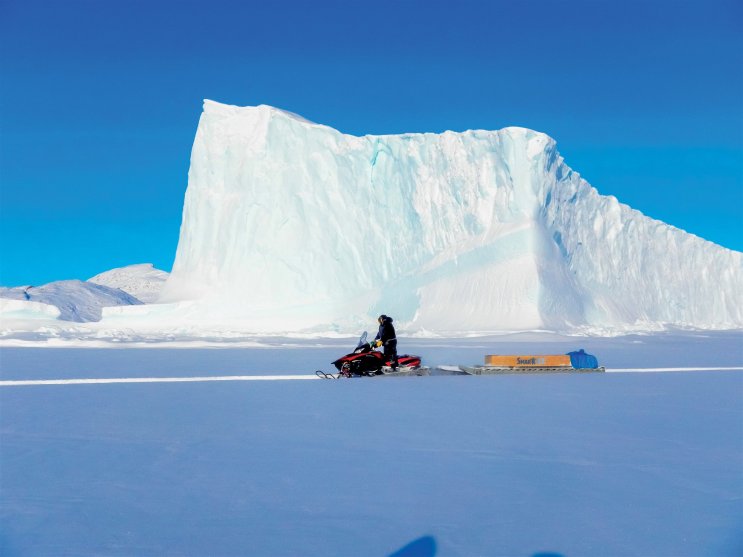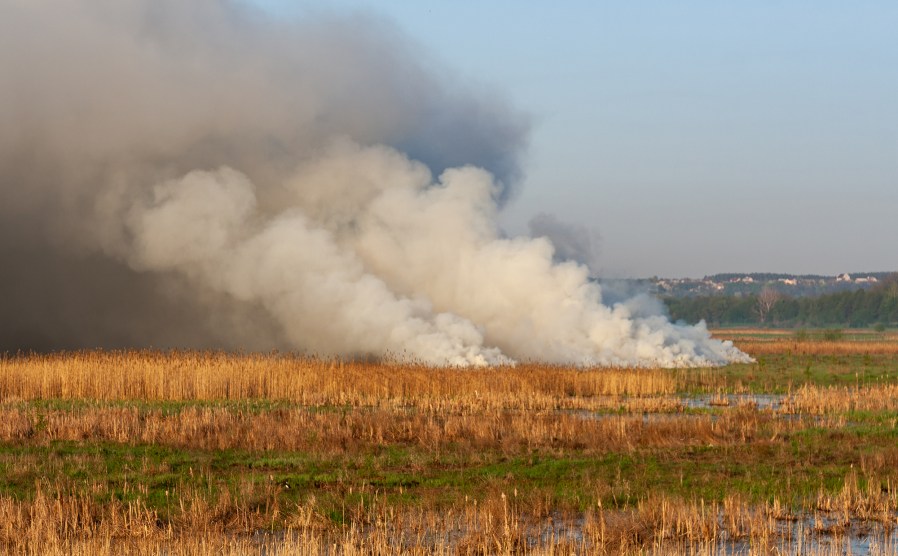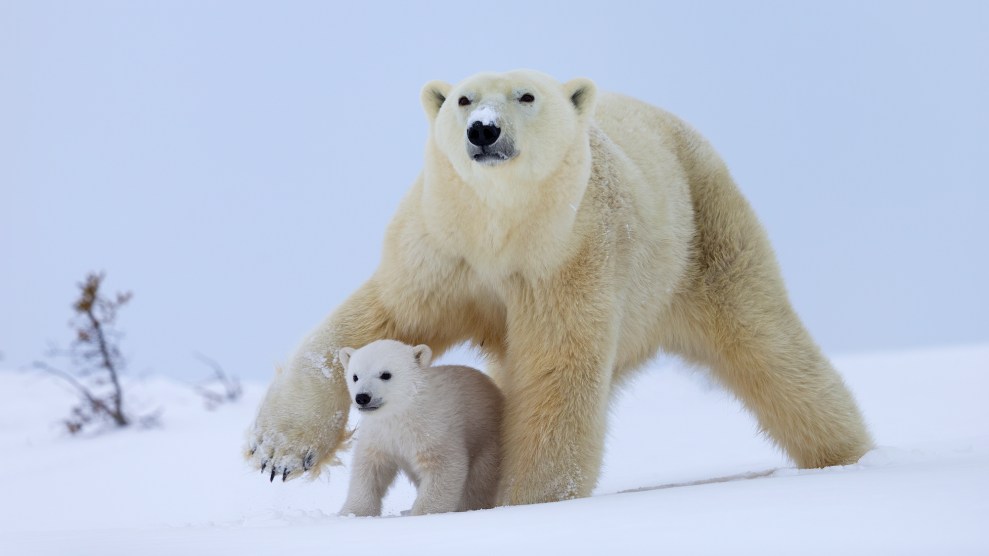
Media Drum World/Zuma
This story was originally published by the Guardian and is reproduced here as part of the Climate Desk collaboration.
The Arctic could have summer days with practically no sea ice within the next decade due to emissions from burning fossil fuels, a study has found.
This would transform the unique habitat, home to polar bears, seals and walruses, from a “white Arctic” to a “blue Arctic” during the summer months, scientists said. The calculation used for “ice free” means less than 1 million square kilometers, in which case the Arctic would be mostly water.
The findings, published in the journal Nature Reviews Earth & Environment, suggest the first ice-free day in the Arctic could occur more than 10 years earlier than previous projections.
The authors said consistently ice-free Septembers could be expected by 2035 to 2067. The exact year within that period is dependent on how quickly the world reduces the amount of fossil fuels burned.
By the end of the century, there is potential for ice-free conditions between May and January under a high-emission scenario, and August to October under a low-emission scenario.
Alexandra Jahn, an associate professor of atmospheric and oceanic sciences at the University of Colorado Boulder and a lead author of the research, said: “This would transform the Arctic into a completely different environment, from a white summer Arctic to a blue Arctic. So even if ice-free conditions are unavoidable, we still need to keep our emissions as low as possible to avoid prolonged ice-free conditions.”
There is, however, potential to fix this issue, she said.
“Unlike the ice sheet in Greenland that took thousands of years to build, even if we melt all the Arctic sea ice, if we can then figure out how to take CO2 back out of the atmosphere in the future to reverse warming, sea ice will come back within a decade,” Jahn said.
It is not just the Arctic wildlife that will suffer as their habitat melts away; people living on the coast will also struggle. Sea ice reduces the effects of ocean waves on the coast, which means that if it is lost the waves will be stronger and bigger and cause more erosion.

